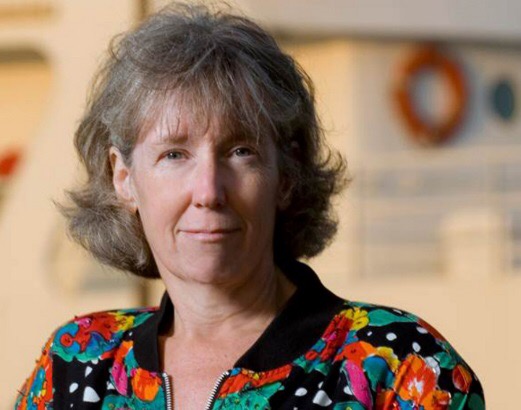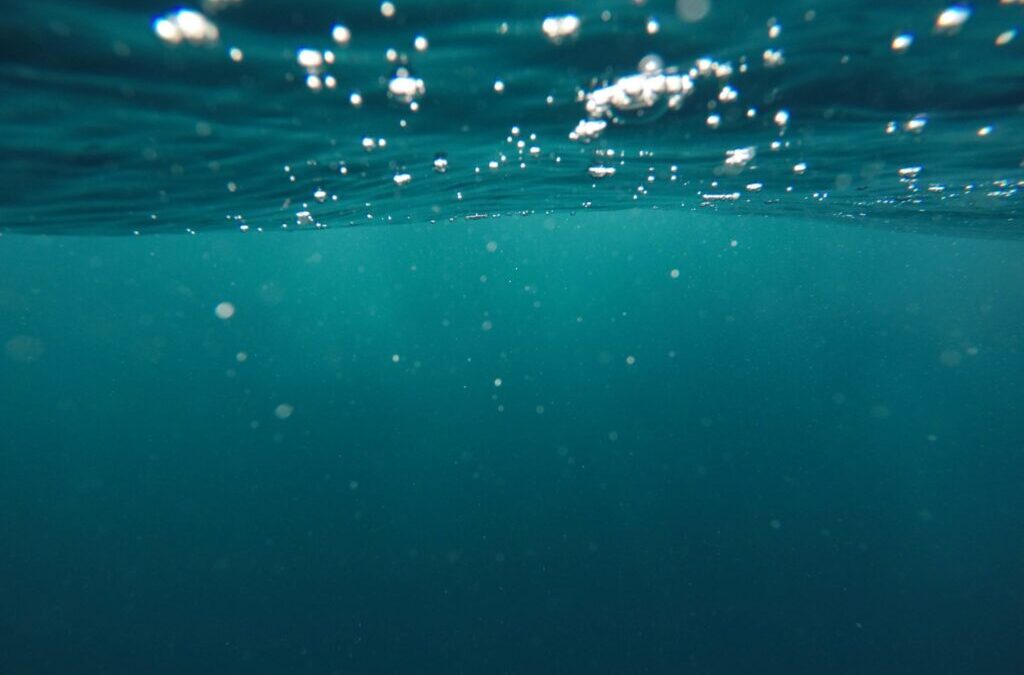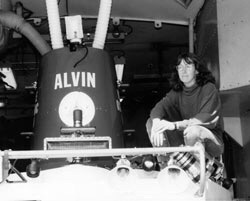It is 5:30 a.m. in the middle of the Atlantic Ocean, in Flemish Pass Basin of Newfoundland’s Grand Banks. The first sunlight that North America will see that day comes up over the horizon and skims the water, turning the ocean shades of tangerine and peach.
On this semi-submersible drilling rig, operations are getting ready to run riser pipe and begin another drilling campaign. I pass by a third-party unit on deck to see them lowering down the Remotely Operated Vehicle (ROV) for a morning swim, to assist in monitoring the joints as they are rigged up on the drill floor and lowered down, section by section.
I stop in to talk to the crew and admire their skills as they sit in their futuristic-looking video-game chairs and, very precisely, pilot down the ROV into position via various screens and video feeds. A female engineer enters, stage left, and gives me pause for reflection – who were her industry female pioneers?
Deep Submergence Vehicle: Alvin
Fifty-two years ago, history was made by a 23-foot submarine named Alvin, which was piloted to a depth of 6,000 feet in Bahamian waters – a dive that certified two pilots of the Deep Submergence Vehicle (DSV), Bill Rainnie and Marvin McCamis, as the first pilots of the world’s deepest-diving research sub.
Alvin’s illustrious career has had a number of proverbial feathers in its cap. Most notably, discovering the presence of hydrothermal vents off the Galapagos Islands in 1977, and having had the first look of the RMS Titanic in 1986. Since Alvin’s commission in 1964, there have only ever been 35 people to captain the specialized vehicle – 34 men and one woman.
Dr. Cindy Lee Van Dover
Born on May 16, 1954 in Eatontown, New Jersey, Cindy Lee Van Dover became the first – and has remained – the only female to ever have become an Alvin pilot.
Cindy Lee Van Dover first graduated from Rutgers University in 1977 with her B. Sc. in Environmental Science. Following that she earned her Master’s Degree in Ecology from UCLA, and became Dr. Van Dover in 1989 when she received her Ph. D. in Biological Oceanography, via a joint program between The Massachusetts Institute of Technology and The Woods Hole Oceanographic Institution.
Between the years of 1989 – 1991, she was able to pursue her Oceanographic disciplines of ecology and biology as the captain at the helm of Alvin. In an interview for the New York Times in 2007, she relayed how lucky she was to have been witness to “… how this [hydrothermal vent] environment could have been the cradle of life on Earth…”

Recently, Dr. Van Dover passed the torch as of Director of the Duke University Marine Laboratory to continue on as faculty at Duke’s Nicholas School of the Environment as the Harvey W. Smith Professor of Biological Oceanography.
At Women Offshore, we are incredibly inspired by Dr. Van Dover’s career and believe that her story, like so many others, deserves to be championed. female submarine pilot
Do you know a woman who was a pioneer on the water? Tell us all about it via email at [email protected]!









Recent Comments